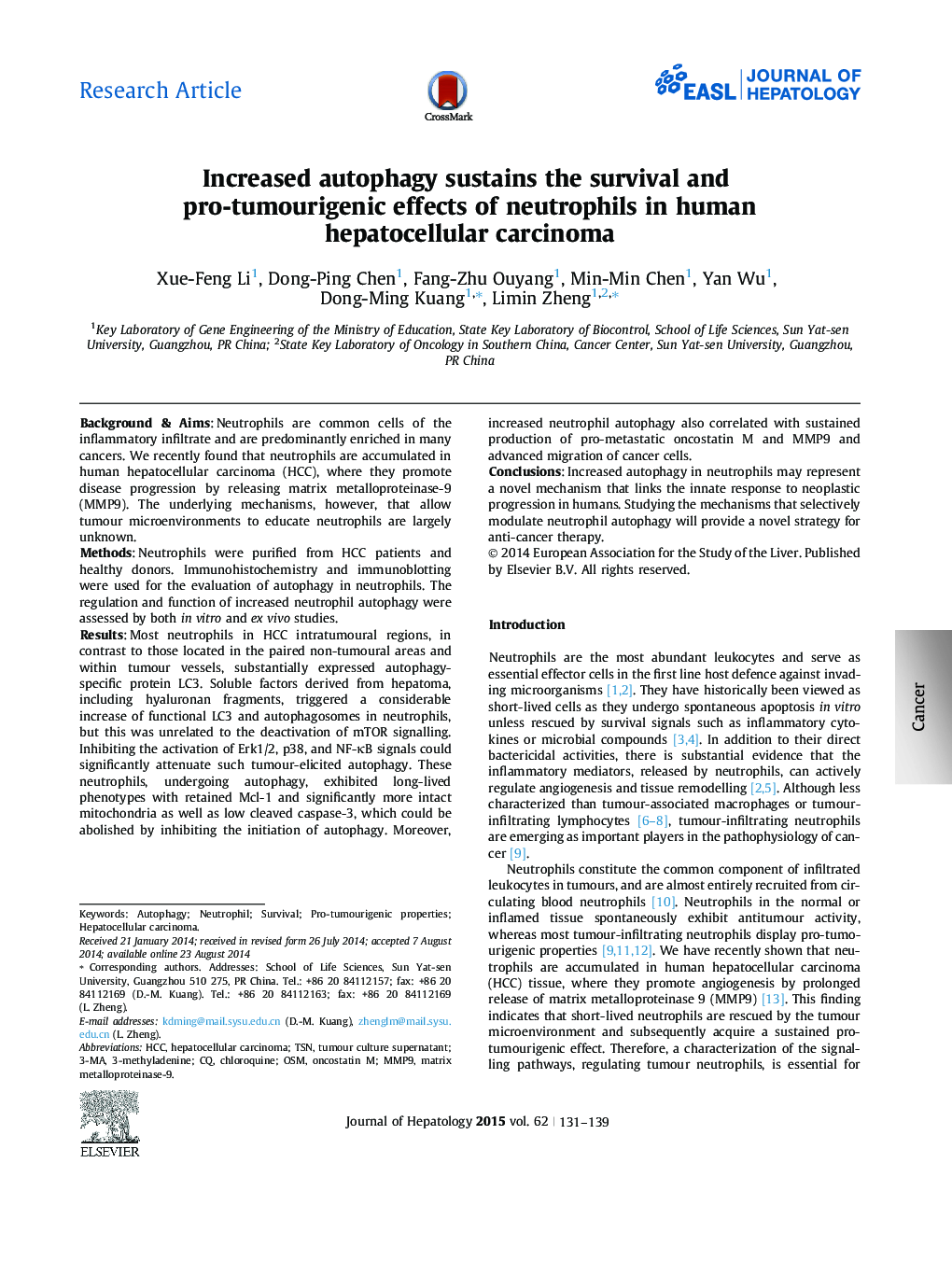| کد مقاله | کد نشریه | سال انتشار | مقاله انگلیسی | نسخه تمام متن |
|---|---|---|---|---|
| 6102941 | 1211121 | 2015 | 9 صفحه PDF | دانلود رایگان |
Background & AimsNeutrophils are common cells of the inflammatory infiltrate and are predominantly enriched in many cancers. We recently found that neutrophils are accumulated in human hepatocellular carcinoma (HCC), where they promote disease progression by releasing matrix metalloproteinase-9 (MMP9). The underlying mechanisms, however, that allow tumour microenvironments to educate neutrophils are largely unknown.MethodsNeutrophils were purified from HCC patients and healthy donors. Immunohistochemistry and immunoblotting were used for the evaluation of autophagy in neutrophils. The regulation and function of increased neutrophil autophagy were assessed by both in vitro and ex vivo studies.ResultsMost neutrophils in HCC intratumoural regions, in contrast to those located in the paired non-tumoural areas and within tumour vessels, substantially expressed autophagy-specific protein LC3. Soluble factors derived from hepatoma, including hyaluronan fragments, triggered a considerable increase of functional LC3 and autophagosomes in neutrophils, but this was unrelated to the deactivation of mTOR signalling. Inhibiting the activation of Erk1/2, p38, and NF-κB signals could significantly attenuate such tumour-elicited autophagy. These neutrophils, undergoing autophagy, exhibited long-lived phenotypes with retained Mcl-1 and significantly more intact mitochondria as well as low cleaved caspase-3, which could be abolished by inhibiting the initiation of autophagy. Moreover, increased neutrophil autophagy also correlated with sustained production of pro-metastatic oncostatin M and MMP9 and advanced migration of cancer cells.ConclusionsIncreased autophagy in neutrophils may represent a novel mechanism that links the innate response to neoplastic progression in humans. Studying the mechanisms that selectively modulate neutrophil autophagy will provide a novel strategy for anti-cancer therapy.
126
Journal: Journal of Hepatology - Volume 62, Issue 1, January 2015, Pages 131-139
